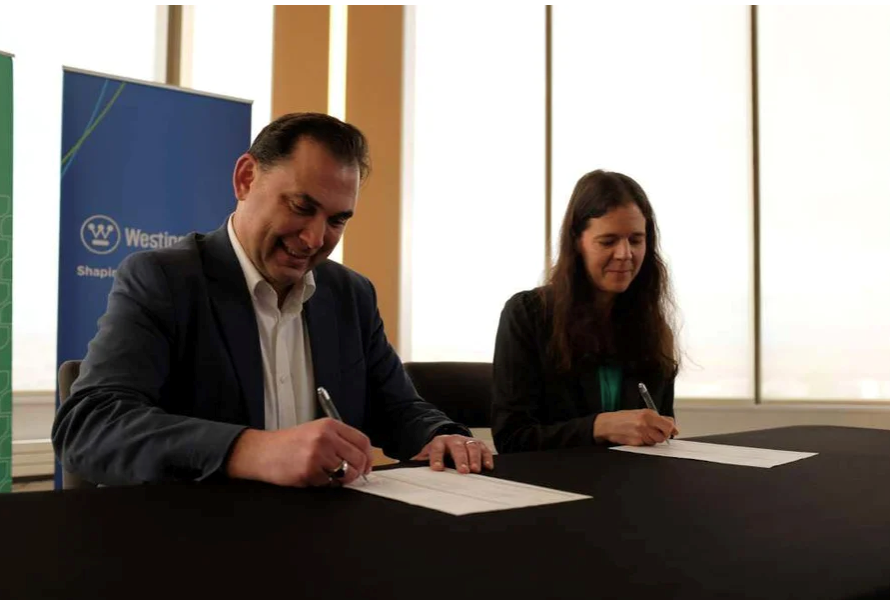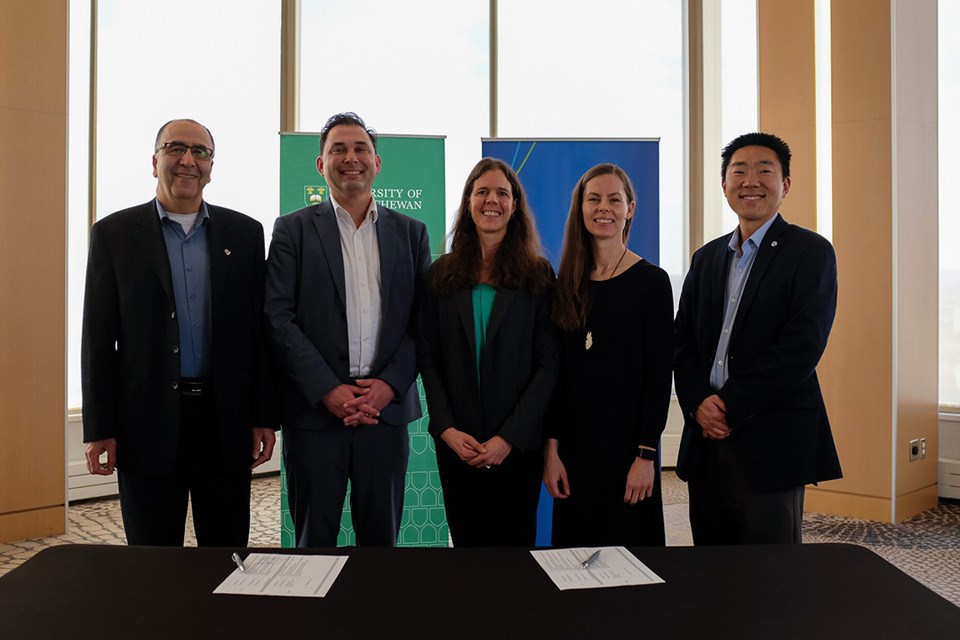SASKATOON — Westinghouse Electric Company and the University of Saskatchewan (USask) have announced the signing of a Memorandum of Agreement (MoA) for technical collaboration designed to accelerate the deployment of the eVinci® microreactor in Saskatchewan.

Michael Bradley, Dean of the USask College of Engineering, and Leah Crider, Westinghouse Vice President of eVinci Commercial Operations, sign technical collaboration agreement designed to accelerate the deployment of the eVinci microreactor in Saskatchewan. | Photo courtesy USask
Under the agreement, Westinghouse and USask will explore collaboration opportunities for the technical development and deployment analysis for the eVinci technology. in Saskatchewan to explore industrial, research and energy use applications.
“USask has a rich history of nuclear research and innovation. Our collaboration with Westinghouse amplifies our commitment to advancing the clean energy solutions our world needs,” said Dr. Terry Fonstad, Associate Vice-President Research at USask. “This multidisciplinary research, involving USask’s School of Environment and Sustainability (SENS), College of Engineering and other departments, has the potential to make a profound, positive impact. By leveraging our combined expertise and resources, we can drive forward advancements that will benefit our communities and enable us to set a global standard for clean energy innovation.”
“The eVinci microreactor stands to provide Western Canada with a sustainable, reliable and economically beneficial energy solution,” said Jon Ball, President of Westinghouse eVinci Technologies. “By leveraging the University of Saskatchewan’s research capabilities, we can accelerate deployment of our microreactor and contribute to the advancement of energy security and clean power generation in Saskatchewan and beyond.”
As part of the collaboration, SENS has conducted an economic analysis of the benefits and opportunities an eVinci microreactor could bring if deployed in remote communities to provide reliable and resilient power and heat. Results from the economic analysis, which covers impacts to community growth and investment, health and safety, will be announced in the coming months.
“This is a very exciting opportunity to lead a shift towards sustainable, secure and efficient clean energy solutions for our communities,” said Dr. Michael Bradley, Dean of the College of Engineering at USask. “With this collaboration with Westinghouse, we are uniting the interdisciplinary expertise from across the University of Saskatchewan to amplify its impact in the field of nuclear research and innovation.”
The builds on decades of industry-leading Westinghouse innovation to bring carbon-free, safe and scalable energy wherever it is needed for a variety of applications, including providing reliable electricity and heating for data centers, the oil and gas industry, mining operations, remote communities, universities, industrial centers, and defense facilities, and soon the lunar surface and beyond. The resilient eVinci microreactor has very few moving parts, working essentially as a battery, providing the versatility for power systems ranging from several kilowatts to 5 megawatts of electricity, delivered 24 hours a day, 7 days a week for eight-plus years without refueling. The technology is factory-built and assembled before it is shipped in a container.
— Submitted by USask Media Relations




